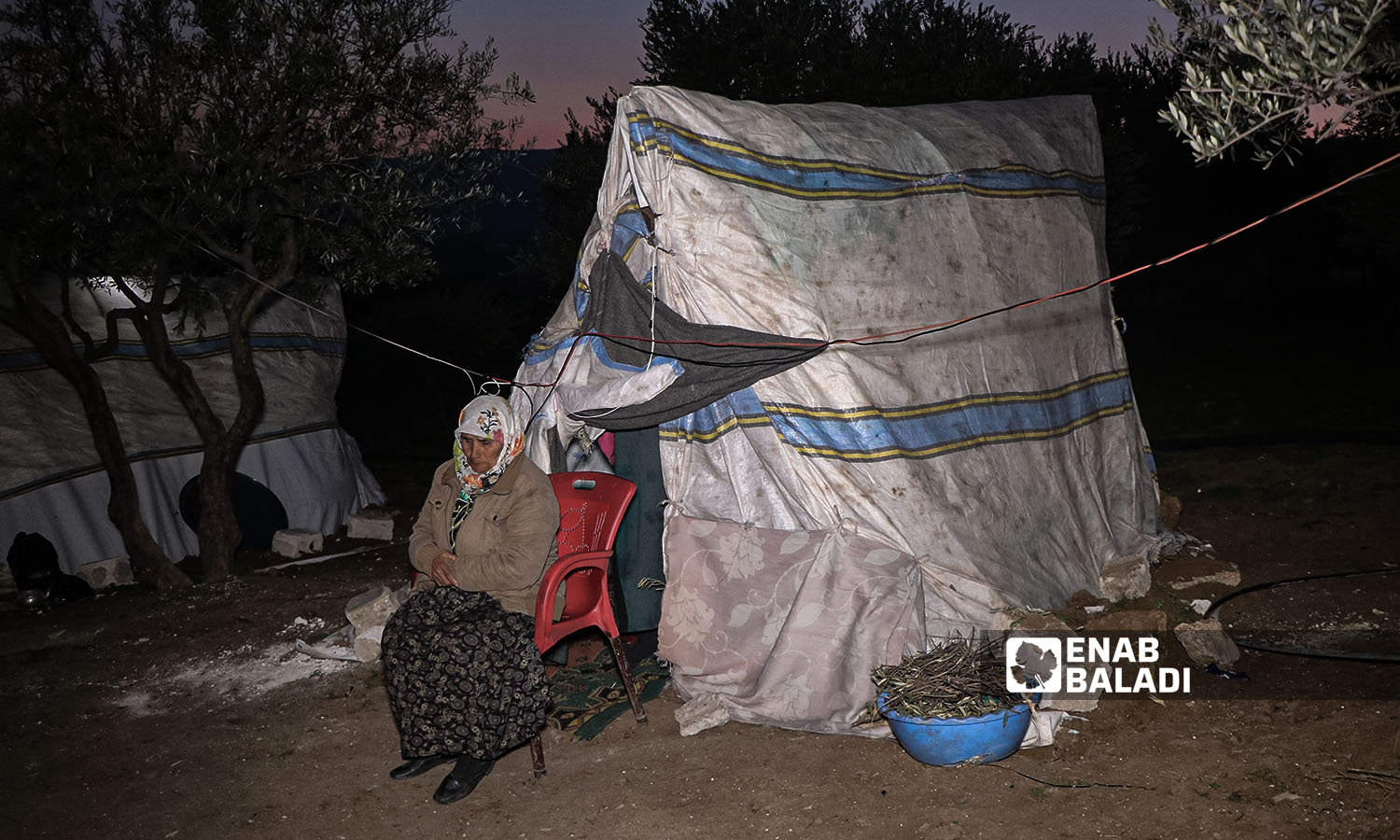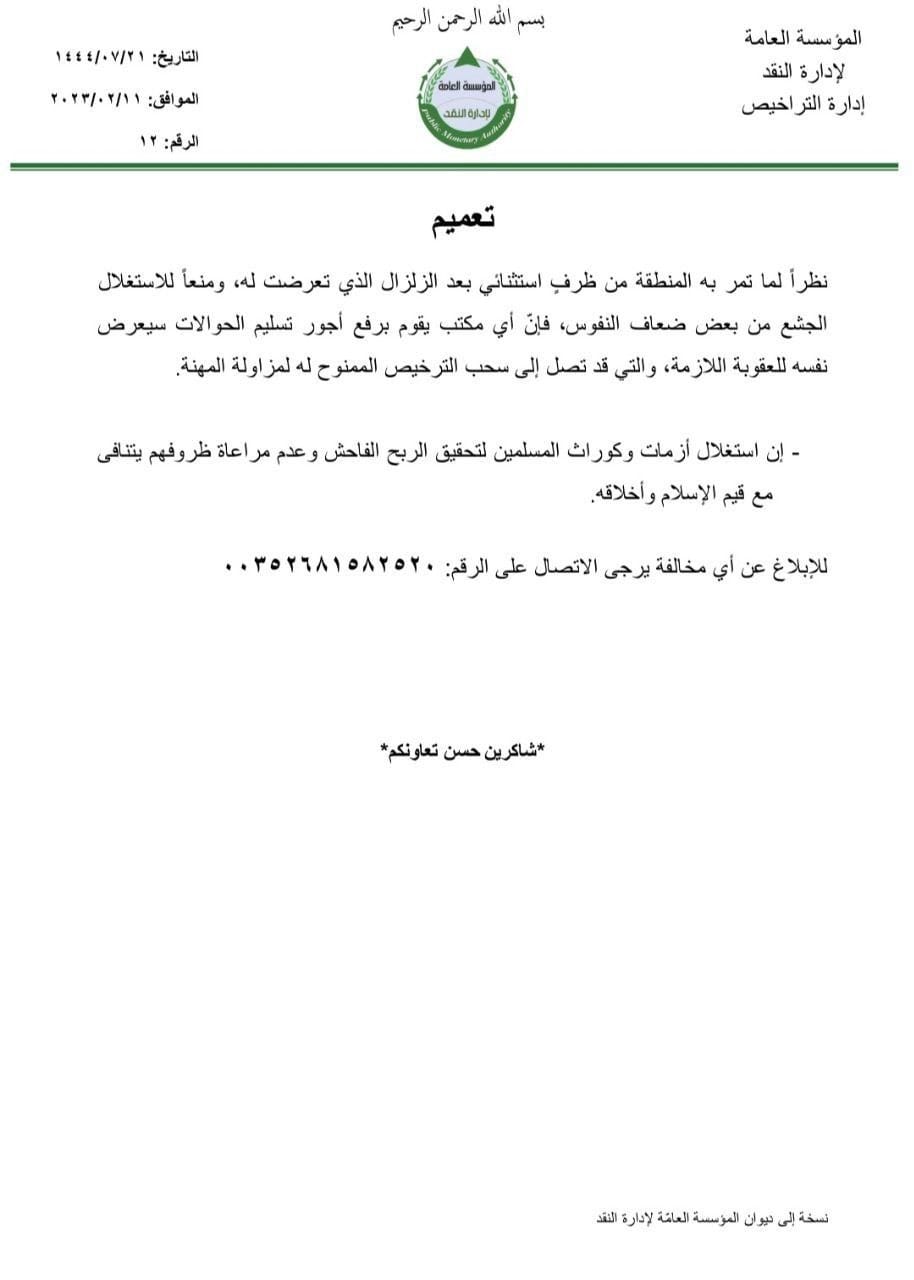



“There is no liquidity,” a phrase that disappointed Hamza Hussam’s hopes of receiving a transfer sufficient for him to rent a house to protect him and his family from the cold after their house was damaged in the earthquake that struck Syria and Turkey on February 6.
Hussam was able to secure $1000 from his relatives and friends residing in Europe, to rent a house to shelter his family after they escaped from their destroyed house in Harem, leaving behind everything they owned except for some pieces of clothing they were wearing, according to what the young man told Enab Baladi.
During the past few days, the people of Idlib have suffered from many problems during attempts to receive money transfers sent by their relatives and friends in response to the earthquake disaster.
Hussam tried to receive the money transfer in full, but the remittance offices refused to hand him more than $200, justifying that because there was no liquidity to cover the need.
Despite his need to receive the full amount, he was able to get only $200, which was not enough to rent a house or secure his family’s needs, according to him.
Muhannad Hallaq, 52, a displaced person from al-Ghouta who resides in the city of Idlib, faced the same problem after he organized a campaign to collect donations from his acquaintances in Europe to help those affected by the earthquake.
Hallaq told Enab Baladi that the problems of money transfers hindered relief efforts, especially after the money exchange and money transfer offices refused to hand over amounts exceeding $200.
Hallaq resorted to circumventing this by dividing the money transfers into the names of several people, which enabled him to receive the full amount of the transfer.
Moath Shousha, the owner of the “Sultan Fatih” exchange and transfer office in Idlib, attributed the remittance offices’ refusal to hand over large sums of money transfers to the shortage of financial supplies and weak liquidity.
Shousha added to Enab Baladi that there are main points of contact between northern Syria and Turkey, on which exchange offices rely to obtain currency supply which is Sarmada town from northern Syria and the state of Antakya from the Turkish side, pointing out that the damage caused by the earthquake led to the cessation of the transfer of funds from Turkey to Syria.
In the event that the offices agree to hand over the full amounts to some people, others will not be able to receive any amount due to the liquidity shortage that will affect the offices, according to Shousha.
He also pointed out that they resorted to delivering small amounts of money on a daily basis to each person until the problem of supplies was resolved.
The owners of remittance offices are trying to rely on workers in the relief and humanitarian field, who are able to enter and exit from Turkey to northern Syria, to enter some sums of money and partially solve the problem of remittances, said Shousha.
Hamza Hussam complained about the “exploitation” of the remittance offices of the disaster and the reliance of most of the population on remittances to raise remittance tariffs.
The remittance offices deduct a larger percentage from small amounts of money than large amounts, which prompted the owners of the offices to limit the amounts each person can receive daily, according to Hussam.
The fees for remittances rose to double what they were before the earthquake, as the transfer fees ranged from 4% to 5% of the value of the amount, while after the earthquake, they reached about 10%.
Raising remittance fees sparked widespread criticism, prompting many residents to demand strict control over exchange and remittance offices, determine remittance fees, and hold accountable merchants trying to make double profits from the disaster.
Enab Baladi asked several exchange offices, and they confirmed that the transfer fees for small amounts are about 3% of their value, while the transfer fees for large amounts are about 1.5% of the amount’s value.
In turn, the local General Agency for Monetary Management issued, on February 11, a decision to withdraw the license granted to remittance offices that raise transfer fees.
The agency has set a unified number to receive complaints about violations committed by remittance and exchange offices.

The decision of the General Agency for Monetary Management in the Salvation Government – February 11, 2023 (Salvation Government)
if you think the article contain wrong information or you have additional details Send Correction